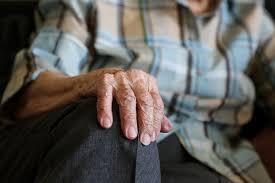Parkinson’s disease is a complex neurological condition that impacts millions of people worldwide. Beyond its hallmark motor symptoms, such as tremors and muscle rigidity, Parkinson’s also influences numerous non-motor functions, including sleep. Disruptions in sleep may significantly affect an individual’s quality of life, potentially compounding the challenges posed by the condition itself.
What Is Parkinson’s Disease?
Parkinson’s disease is a progressive neurological disorder that arises when certain nerve cells in the brain experience deterioration or death. These cells produce dopamine, a neurotransmitter that plays a pivotal role in regulating movement and coordination. When dopamine levels decrease, it manifests in symptoms such as shaking, stiffness, and difficulty with balance and coordination.
Although Parkinson’s is frequently associated with movement-related symptoms, it encompasses far more. Non-motor symptoms, including those related to mood, cognition, and autonomic functions, also form a significant part of the condition. While Parkinson’s is most commonly seen in individuals over 60 years old, younger people may also develop the disease. Its progression and symptom severity vary greatly among individuals.
How Does It Affect Your Life?
Living with Parkinson’s brings various challenges that extend beyond motor disruptions. The physical symptoms, such as tremors and bradykinesia (slowness of movement), impact daily routines, making previously manageable tasks more difficult. Parkinson’s can lead to changes in emotional and cognitive health. Some individuals experience depression, which may further influence their ability to interact socially or participate in activities they enjoy. Non-motor challenges like disrupted sleep add another layer of complexity, often interfering with an individual’s overall sense of well-being.
How Does It Affect Your Sleep?
Sleep disturbances are a common complaint among individuals with Parkinson’s. Research suggests that almost two-thirds of people living with the condition experience disruptions to their sleep. These disturbances can take on various forms, and addressing them often requires input from healthcare professionals.
Insomnia and Difficulties Falling or Staying Asleep
Many individuals living with Parkinson’s experience trouble falling asleep. Movement disorders, muscle rigidity, or discomfort related to the condition may extend the time it takes to transition into sleep. Even when sleep is achieved, frequent awakenings caused by pain or an inability to change positions can be problematic.
Increased Daytime Sleepiness
Daytime fatigue is another issue often observed in those with Parkinson’s. Neurological changes and disruptions to nighttime sleep may contribute to excessive sleepiness during the day. Certain medications used to treat Parkinson’s symptoms can cause drowsiness, further intensifying the problem.
REM Sleep Behavior Disorder
Rapid Eye Movement (REM) sleep behavior disorder is more frequently reported in individuals with Parkinson’s compared to the general population. This condition occurs when the body fails to achieve the typical paralysis that accompanies REM sleep, resulting in individuals physically acting out their dreams. Such episodes may include talking, punching, or kicking, sometimes leading to injury for the individual or their sleep partner.
Restless Legs Syndrome or Periodic Limb Movements
Some people with Parkinson’s experience sensations of discomfort or restlessness in the legs, especially during the evening. These symptoms may be accompanied by periodic limb movements, where the legs or arms jerk uncontrollably during sleep. These challenges can further fragment sleep and lead to insufficient rest.
Reach Out to a Medical Care Provider for Treatment
Addressing sleep disruptions in Parkinson’s disease often involves a multifaceted approach. Medical care providers can evaluate existing sleep patterns and provide recommendations tailored to an individual’s needs. Interventions may include adjustments to medications or the use of sleep hygiene techniques to promote better rest. While Parkinson’s poses unique challenges, professional guidance and the use of appropriate strategies can significantly improve sleep and other daily experiences.
- mylovelyfurryfriend discover expert tips on dog health
- Infectious Diseases Updates – Stay Informed, Stay Protected!
- Wegovy For Weight Loss – A Breakthrough in Managing Obesity!
- Emergency Medicine Forum – A Hub for Fast-Paced Knowledge, Support & Updates!
- Pediatrics Discussions – Insights, Challenges, and Expert Advice for Better Child Health!





Leave a Reply